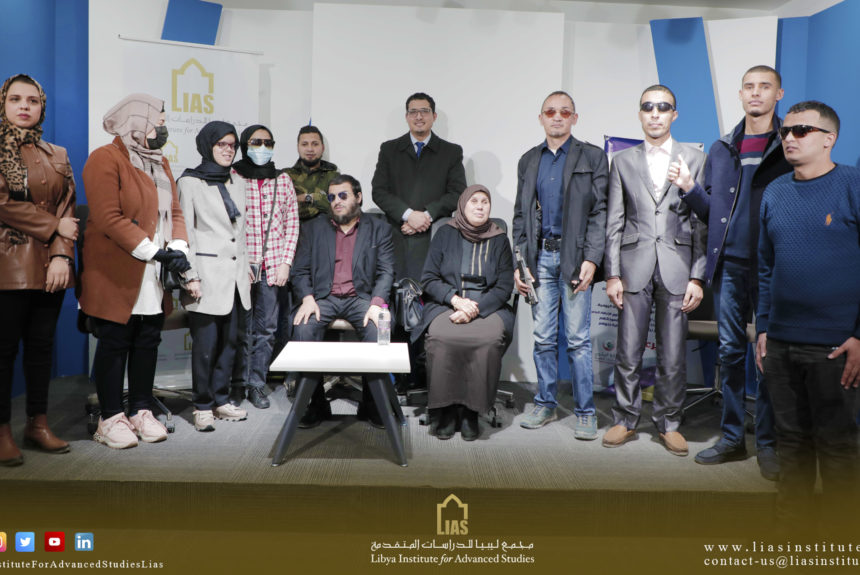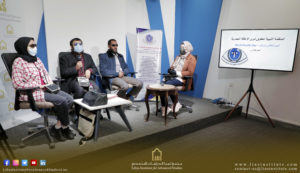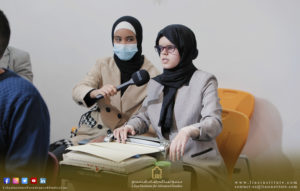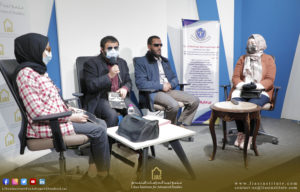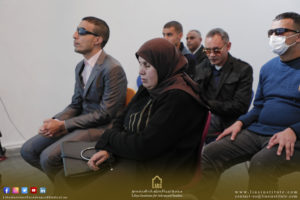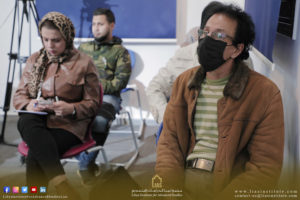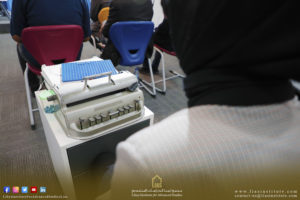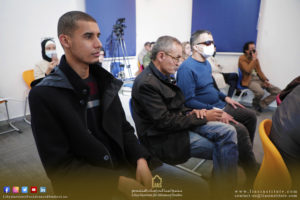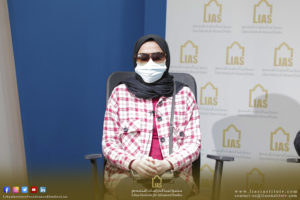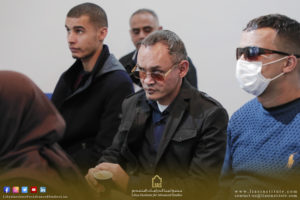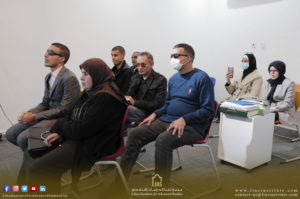Today, Thursday, January 6, 2022, the Libya Academy for Advanced Studies, in cooperation with the Libyan Organization for the Rights of the Visually Impaired, organized a meeting on the blind in Libya, “Rights, Laws, Obstacles, Hopes,” on the occasion of World Braille Language Day, in the Libya Academy Hall in Benghazi.
The meeting opened with verses from the Holy Qur’an, recited by Mr. Nasser Al-Zawawi. The main speeches at the meeting were given by Mr. Abdel Basset Al-Aqouri, President of the Libyan Organization for the Rights of People with Visual Disabilities, Mr. Sami Al-Tirkawi, President of the General Assembly of the Libyan Organization for the Rights of People with Visual Disabilities, and Ms. Fatima Al-Sharif, a blind journalist.
A group of professors, specialists and interested parties also participated.
The meeting touched on the Braille language, its importance, history, and the International Day, as was done talking about the problems, difficulties and obstacles that people with visual disabilities suffer from, whether in terms of legislation and laws, or in terms of official and informal government applications, and some of the hopes and ambitions they seek.
They stressed their right to fully participate in elections, to participate, nominate, and elect, and also to participate in political parties and civil organizations, their rights to obtain job opportunities, and the necessity of amending legal procedures and legislation to take into account their privacy, in addition to the necessity of their integration and participation in workshops, courses, seminars, and handicrafts.
It was also noted that they do not participate in sports and entertainment and that they do not have a special team, nor are they trained or cared for. The need for official authorities to take care of them, bring in contemporary technology in the developed country to care for them, provide assistive devices, printers and devices for them, and develop centers and institutes for teaching the blind with the latest contemporary equipment.
It was also noted that the problem is compounded by women with visual disabilities, and the lack of job, teaching, and participation opportunities for them as well.
The meeting concluded with the need to educate society on how to deal with the blind, the ways and methods of teaching them, and providing the appropriate environment and means for them.
The management of the Libya Complex was presented with a certificate of thanks and appreciation from the Libyan Organization for the Rights of the Visually Impaired in Braille.


